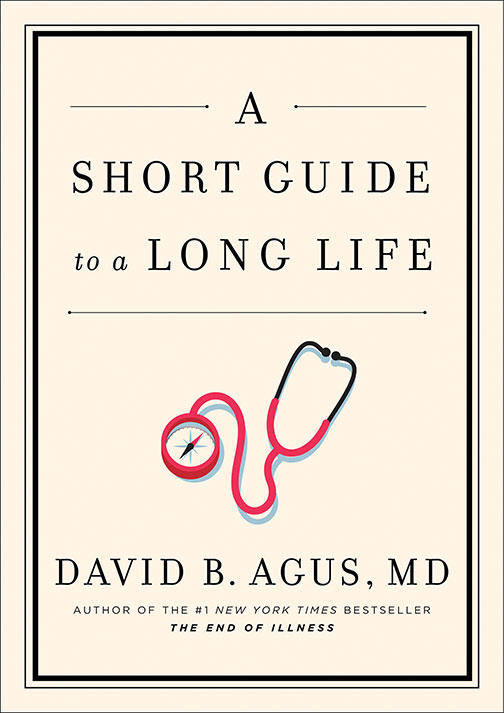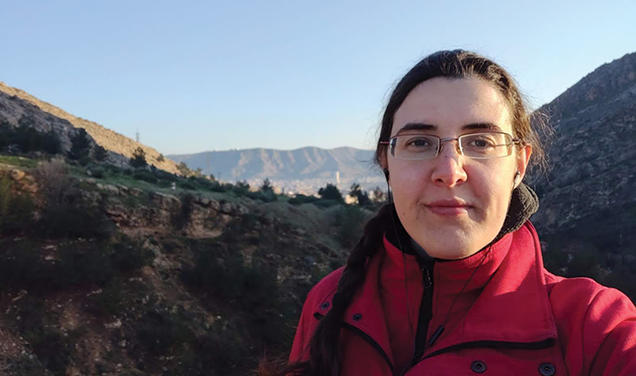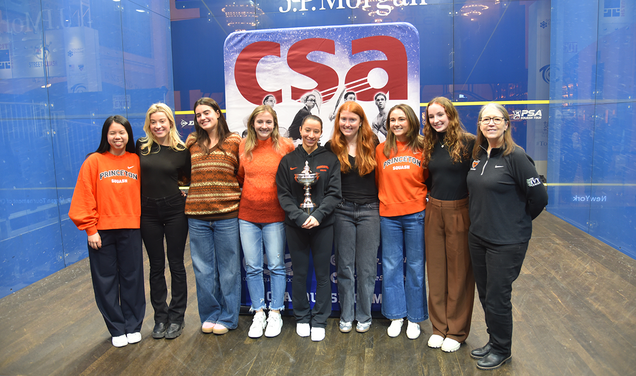
Cancer specialist, researcher, and wellness advocate David Agus ’87’s health advice sounds simple enough: “Every day your body is talking to you. You have to listen.” His second book, A Short Guide to a Long Life (Simon & Schuster), prescribes 65 rules that combine common wisdom with the latest scientific thinking.
You’ve heard much of it before: Maintain a healthy weight (Rule 13); pursue your passions (Rule 30); avoid sunburn (Rule 57). But Agus throws in some surprises: Automate your life with a consistent routine for eating, sleeping, and exercise to reduce stress (Rule 3); consider DNA testing to learn your risk for certain illnesses (Rule 20); and ditch vitamins and supplements in favor of food for the best nutrition (Rule 62).
A professor of medicine and engineering at the University of Southern California’s Keck School of Medicine and Viterbi School of Engineering, Agus wrote A Short Guide as a SparkNotes version of his first book, The End of Illness, which delves deeper into scientific data. He knows that not everyone will agree with him on every rule (Agus and television personality Dr. Mehmet Oz have skirmished over Agus’ suggestion that people over 40 should consider taking statins to control cholesterol for heart health and to reduce chronic inflammation, which researchers have linked to diseases such as cancer and diabetes), but Agus counters, “I want people to argue. From discourse comes understanding.”
He continues to see patients at USC’s Norris Westside Cancer Center, and he has appeared regularly as a CBS contributor since May 2013.
His mission, he says, began from frustration. “I know I can’t cure advanced disease,” he says. Agus began to think about how to stop cancer cells from growing in the first place, which led to more interdisciplinary approaches to tackle disease and his current mantra: Prevention is the best medicine, and every individual needs to understand what’s best for his or her body.
He does his best to follow his own rules, riding horses with his daughter and playing tennis with his son to mix up his exercise routine. They all wear fitness trackers and compare their metrics at the end of the day.
Agus advocates employing technology wherever possible. He co-founded the companies Navigenics (recently sold), which sequences a person’s genome, and Applied Proteomics, which gives a readout of all the proteins in the blood, the better to assess if advanced testing, such as a colonoscopy, is needed. And he has organized his medical records in a digital file that he carries on his smartphone so that it’s available at a moment’s notice.
Sometimes he reminds patients that there is no miraculous cure-all. “The path to improvement is not finding the one thing you are lacking — it’s following a collection of rules,” Agus writes. “By sticking to as many as possible, your chance of a long, fulfilling life goes up.”
David and Goliath: Underdogs, Misfits, and the Art of Battling Giants by Malcolm Gladwell. “Malcolm makes important observations on education throughout the book.”











0 Responses